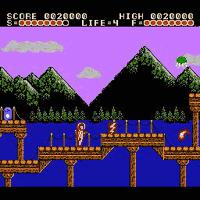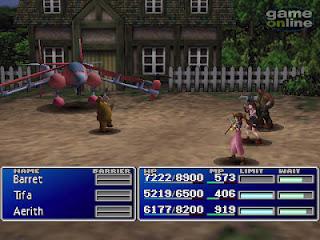 It's been all over the news today that in the UK it is now a legal requirement for all Video Games to have a Pan European Game Information (PEGI) Rating on the box. The idea being to offer help and guidance to parents who might be buying potentially violent games for their children. It is of course in a similar vein as the way the BBFC regulates film in both Cinema and video-format, in that games will be given a certain certification if the game falls into certain categories.
It's been all over the news today that in the UK it is now a legal requirement for all Video Games to have a Pan European Game Information (PEGI) Rating on the box. The idea being to offer help and guidance to parents who might be buying potentially violent games for their children. It is of course in a similar vein as the way the BBFC regulates film in both Cinema and video-format, in that games will be given a certain certification if the game falls into certain categories.Games will be rated on a variety of factors, including:
- Violence - I'm intrigued to know how they will distinguish between violence with blood and gore, and Disney-type violence in the games such as Kingdom Hearts or even many role-playing games, with attacking, but no bloody-ness
- Bad Language
- Sex
- Drug-Use
- Discrimination - Not entirely sure what types of Discrimination are being pinpointed!
- Fear
- Gambling
And games will feature icons informing parents what they should be aware of.
But hang on, are these "changes" really new, and are they actually going to make any difference to the games that kids play?
Video Game Violence
Before I get to the real rating stuff, I want to talk about something that always bugs me about stories like this. Basically, I have major issues with how uppity the media gets regarding violence in video games. It's like they're sat up on this mentally stable pedestal, because in their "youth", they entertained themselves with twigs and high morals. In their world, video games are somehow immoral and torturing the souls of kids of today. What a load of rubbish.
 I'm going to be honest. I've been playing video games since before I can remember. Now, noting that I'm 28 years old, when I was a kid, the vast majority of games involved jumping across 2D platforms and doing a lot of pointing-and-clicking. There was no real violence, not even in The Nightmare on Elm Street game that I remember playing when I was about 9 or 10, even though I've still to this day never seen any of the films. However, I really got into playing games in around 1997/98 when my brother coerced me into playing Final Fantasy VII.
I'm going to be honest. I've been playing video games since before I can remember. Now, noting that I'm 28 years old, when I was a kid, the vast majority of games involved jumping across 2D platforms and doing a lot of pointing-and-clicking. There was no real violence, not even in The Nightmare on Elm Street game that I remember playing when I was about 9 or 10, even though I've still to this day never seen any of the films. However, I really got into playing games in around 1997/98 when my brother coerced me into playing Final Fantasy VII. Interestingly, I remember that game which features no blood, no gore, bad language that is good old-fashioned #*&%$ type bad language and yes, two characters that use guns, being caught up in the big "Video Games are Evil" court case following a High School Shooting. Yes, that's a game with no blood or gore, that has sold literally millions of copies worldwide, gets taken to court because one or two idiots who committed a really mind-numbingly awful crime, just happened to have played it.
 This of course wasn't the first time that the media had or even will accuse games of being the most evil thing since, well the last really bad thing. The media like to find a scapegoat and make them suffer...I think some people consider it entertaining.
This of course wasn't the first time that the media had or even will accuse games of being the most evil thing since, well the last really bad thing. The media like to find a scapegoat and make them suffer...I think some people consider it entertaining.But, okay, and what about the millions of other gamers who have played those games? Those normal kids (and grown ups) who have managed to differentiate between the real world and the gaming world? Do they count for nothing, whilst people want a game banned because of a couple of idiots?
The Difference Today
Without doubt, modern gaming is very different today to when I was a kid. Games are much more detailed allowing for more graphic forms of violence, and the growth of dialog in gaming has boosted the use of bad language.
When I was younger, it was easy to know the difference between game and reality, because c'mon reality does not have a square head or pixelated boobs (a la Lara Croft of course!). However, now that graphics are becoming so "photo-perfect" and eerily realistic is the question of differentiation a little more difficult to answer? Is that the real problem? It isn't necessarily the content, but more the realism?
Whatever the answer, it is only common sense that some form of rating is now incredibly necessary in games, just as much as it is necessary in film, and often even the music industry.
The Age of Ratings
Anyway, now I've got past the media's obsession with video game violence, I'll properly look at age ratings. To be fair, these "new" age ratings aren't that big of a deal. Why? Because despite what the media says, and some parents might make the excuse of: the vast majority of games have had games ratings, for at least fifteen years. Almost every game I own covering the Playstation, the Playstation 2, the PSP, the Playstation 3 and the Nintendo DS have a rating of some kind.
 Earlier Playstation games appear to have ELSPA Ratings, and one Playstation 2 game has actually been given a BBFC Rating. However 99% of games have a PEGI-based rating, including the break down of things that parents should be aware of. And you know what? Parents have still be buying these games for their kids. How do I know? Because I've seen them in Game, Gamestation and even HMV. It's not as if parents can say that they don't understand the ratings, because ultimately they're very similar to the ones we all know from films, but the icons are so self-explanatory there really is no excuse.
Earlier Playstation games appear to have ELSPA Ratings, and one Playstation 2 game has actually been given a BBFC Rating. However 99% of games have a PEGI-based rating, including the break down of things that parents should be aware of. And you know what? Parents have still be buying these games for their kids. How do I know? Because I've seen them in Game, Gamestation and even HMV. It's not as if parents can say that they don't understand the ratings, because ultimately they're very similar to the ones we all know from films, but the icons are so self-explanatory there really is no excuse. Don't get me wrong, I am all for supporting these certifications and icons, but they're not new and people don't seem to care about them.
Don't get me wrong, I am all for supporting these certifications and icons, but they're not new and people don't seem to care about them.In fact, in the article by the BBC Consultant Clinical Psychologist and Author; Professor Tanya Bron is quoted as saying:
"It would be great to see parents taking an interest in their children's video game playing. This can involve taking direct control of what games their children play at home, how they play them and for how long, through taking note of the Pegi ratings."
I really don't want to accuse a professional, with (I hope) more knowledge than me, of being "naive", but I can't help it. The comments really do sound naive. Parents haven't taken an interest before now, so what is going to change?
Ultimately, nothing is changing. Games have always been rated, albeit unofficially and games have not been forced to be certified, and they are going to continue to be rated, albeit officially and it will now be a legal requirement. I do think it's good that it's a legal requirement, but it's patronising to the industry and comes across like the Top Dog Officials with no real knowledge or experience, yet again, sticking their nose in to try and make it look like they have a clue about what they're doing, in an industry that they don't appear to understand.
Kids are always going to play semi-violent games, because even Disney games have the potential to be violent. We can't wrap them up in cotton wool, but we should all be stepping up in being responsible about what kids are too young to be witnessing.

